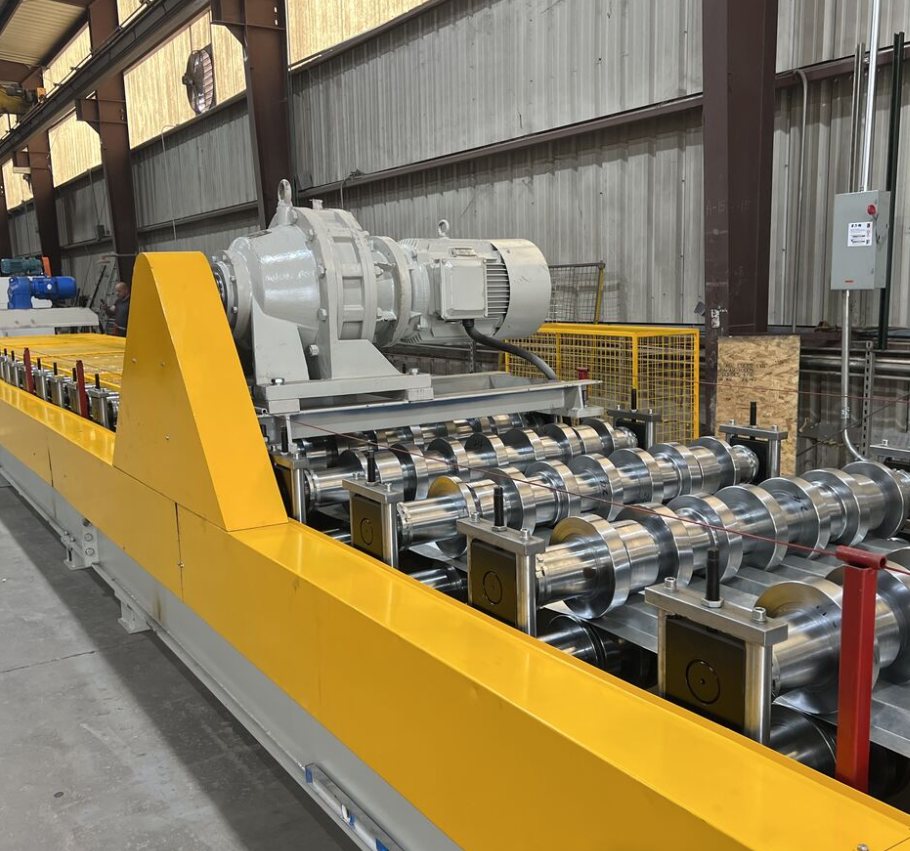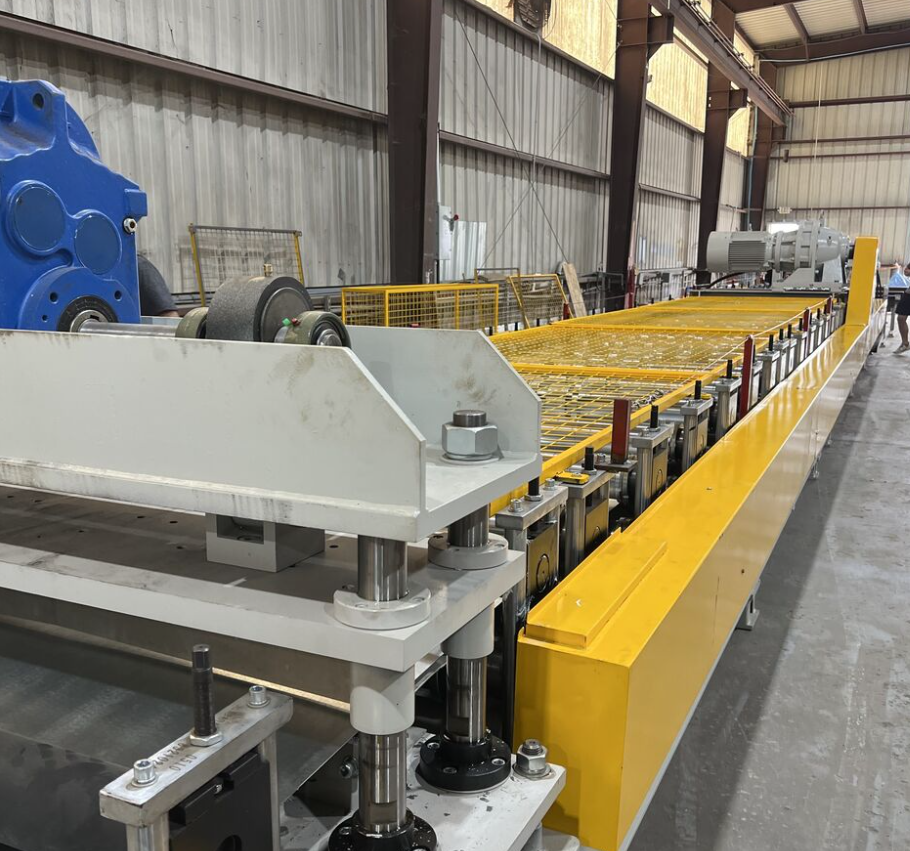To express an interest in this machine please submit the form below.

Not Sure What Machine You Need?
Select Your Profile, We'll Match It
Choose your desired profile drawing, and let Machine Matcher connect you with the best roll forming machine tailored to your needs.
Browse Profiles



Metal deck roll forming machines are specialized equipment designed to produce high-quality metal decking profiles used in construction projects. These machines cater to a growing demand in Massachusetts due to the state’s robust commercial, industrial, and residential construction sectors. This blog covers the machine's specifications, features, setup process, and answers common questions about metal deck roll forming machines.
A metal deck roll forming machine is an automated industrial system used to fabricate metal decking panels. These panels serve as structural components for floors, roofs, and composite concrete slabs in construction. Known for their precision and efficiency, these machines streamline the production of customized decking profiles with consistent quality.
Below are the standard and optional specifications for metal deck roll forming machines:
Massachusetts, with its rapidly growing urban infrastructure, offers an ideal market for metal deck roll forming machines. These machines
are indispensable for industries involved in:
By focusing on these segments, manufacturers and distributors can cater to the increasing demand for high-quality and customizable metal decks in the state.
1. What are the typical applications for metal deck roll forming machines?
Metal deck roll forming machines are used to produce decking panels for floors, roofs, and composite concrete structures. They are widely used in construction projects, including commercial buildings, industrial facilities, and residential developments.
2. How much space is needed to install the machine?
The installation requires a large, flat workspace. Typically, a space of 20–30 feet in length and 10–15 feet in width is sufficient, depending on the machine size.
3. What power supply is required for these machines?
In Massachusetts, the standard power supply is 3-phase, 480V, 60Hz. Ensure the factory or workshop meets this specification.
4. What materials can these machines process?
These machines are compatible with galvanized steel, aluminum, and cold-rolled steel, with thicknesses ranging from 0.8 mm to 1.5 mm.
5. Are the machines customizable for different profile types?
Yes, the PLC system allows easy customization for various profiles, dimensions, and punching patterns.
6. How can I ensure the machine meets Massachusetts safety regulations?
Purchase machines with safety certifications like CE or ISO standards. Ensure safety guards and emergency systems are in place.
7. What maintenance is required for the machine?
Regular lubrication of rollers, periodic inspection of hydraulic systems, and cleaning of the PLC interface are essential for optimal performance.
8. What is the typical pricing range for these machines?
Prices range from $50,000 to $320,000, depending on machine specifications, optional features, and customizations.
Copyright 2026 © Machine Matcher.